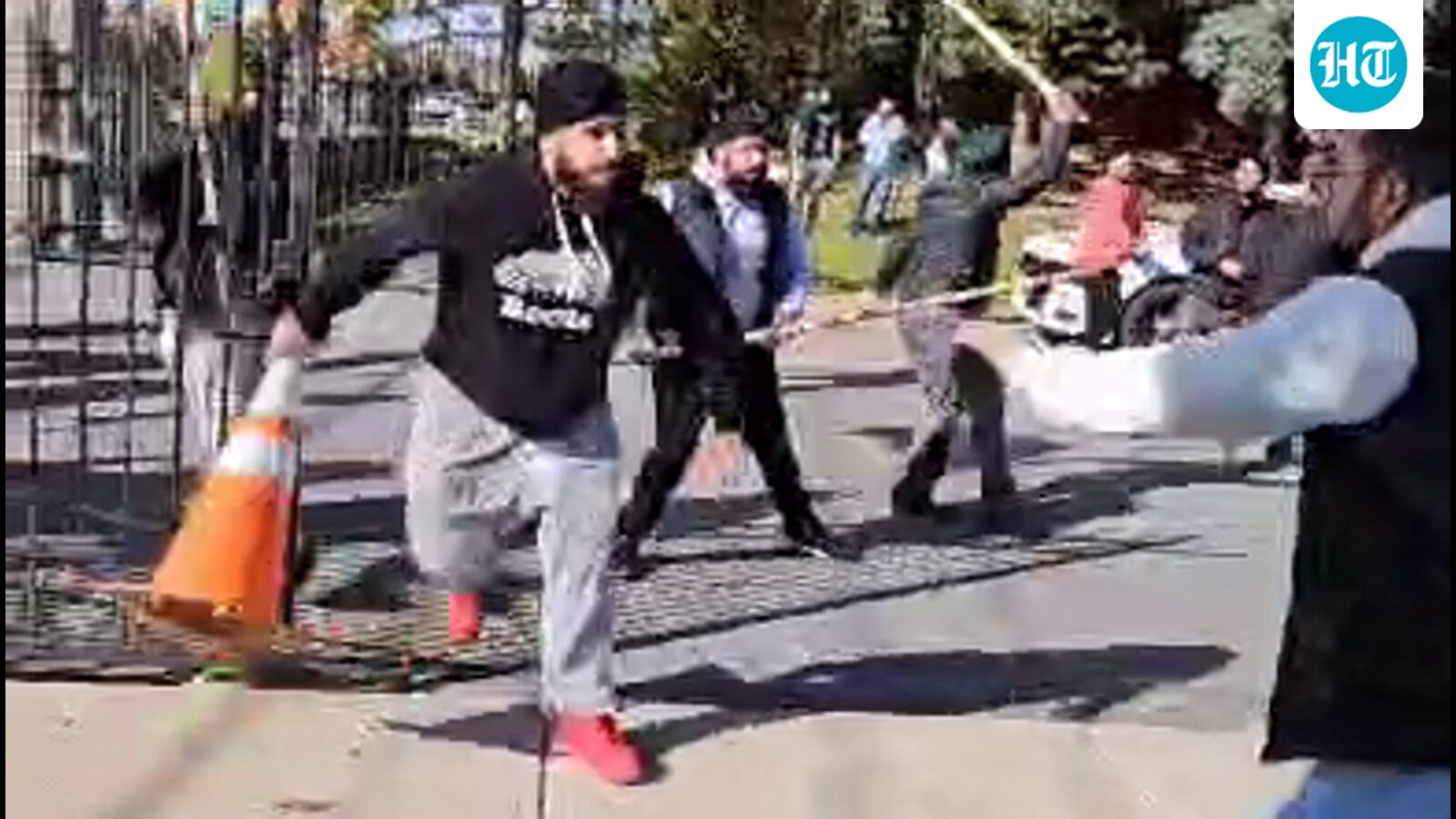Indo-Canadians welcome bill to combat hate crimes based on identity, religion

Indo-Canadian community groups have cautiously welcomed a bill tabled by the Canadian government to combat hate crimes targeting identity groups including those based on religion.
Pro-Khalistan radicals violently attacked the Hindu Sabha Mandir in Brampton in November last year. ((Credit: Video Screengrab))
The proposed legislation will make it a crime to intimidate and obstruct people from accessing places of worship, as well as schools, community centres and other places primarily used by an identifiable group. It will make hate motivated crime a specific offence, ensuring such conduct is more clearly denounced and that offenders are held accountable. It will also make it a crime to wilfully promote hatred against an identifiable group by displaying certain terrorism or hate symbols in public, a release from the Ministry of Justice noted.
The bill comes nearly a year after pro-Khalistan protestors violently attacked the Hindu Sabha Mandir in Brampton in November last year. In addition, there were over 20 incidents of such elements desecrating temples across Canada over the past couple of years.
However, the current bill was impelled by the targeting of Jewish institutions and individuals in Canada since the October 7, 2023, terrorist attacks in Israel.
Importantly, the bill officially identifies the hate symbol used by the Nazis and neo-Nazi groups as the Nazi Hakenkreuz (hooked cross) and not as the swastika, which is an auspicious symbol used by Hindus, Buddhists and Jains. Indo-Canadians groups have campaigned against calling the Nazi Hakenkreuz as the swastika.
The bill will also introduce a new, “hate propaganda offence that would make it a crime to wilfully promote hatred against an identifiable group by publicly displaying certain terrorism or hate symbols”, including those principally used or associated with terrorist entities listed by the government. Two pro-Khalistan entities figure in that list: The Babbar Khalsa International and the International Sikh Youth Federation.
The Canadian chapter of the Coalition of Hindus of North America or CoHNA Canada welcomed the “landmark bill that promises to strengthen the Criminal Code in addressing rising Hinduphobia and other forms of hate. “
It applauded key measures including the hate propaganda offence and criminalising of intimidation or obstruction at places of worship, schools and community centres. “Over the past few years, we have seen more than two dozen attacks against Hindu temples, including medieval style invasions and violence against devotees,” it said in a statement.
“But the true measure of the bill’s success lies in its enforcement,” it stressed while opposing the description of the Nazi Hakenkreuz as “also known as the swastika”.
The Vishwa Jain Sangathan Canada supported the government’s “efforts to make legislation to address hate crimes in Canada, and we stand in solidarity with Jewish and all other Canadian communities facing hate crimes in Canada.”
However, in a statement, its president Vijay Jain requested the government to remove the swastika term from the proposed legislation. “Swastika is a Sanskrit word and it’s meaning is prosperity and well being of all. The word is used extensively in Jain, Hindu and Buddhists religious texts, prayers and rituals. Usage of swastika word in hate context deprives Jain, Hindu and Buddhist Canadians their religious rights to use the word in their prayers,” he said.




